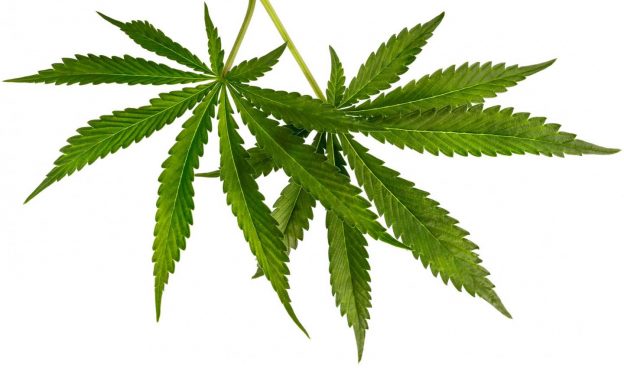2018 Farm Bill Makes CBD Oil Legal
The 2018 Farm Bill legalizes hemp cultivation and removes industrial hemp from the federal government’s list of controlled substances. The move does not legalize marijuana, but it does legalize hemp, a useful ingredient that is commonly used for things like apparel or building materials, as well as non-psychoactive CBD oil and other CBD products which offer health benefits. The level of THC contained in industrial hemp is very low at 0.3 percent, and does not cause the “high” common to marijuana. The bill was introduced by Senator Mitch McConnell (R-Ky), and it permits states to regulate hemp cultivation.

Cannabis Plant
Image/Lancaster University
The Farm Bill, which is renewed every five years, did relax hemp laws under the previous one passed in 2014, which distinguished industrial hemp from marijuana and allowed for some limited production, but the new one will clear a path for hemp and CBD to become produced and distributed legally throughout the United States.
A new industry
The bill would legalize the cultivation of hemp, and some analysts predict that it could easily become a $20 billion industry by 2022. Currently, most CBD products are imported from Canada, China and Europe. As a new agricultural commodity which can be insured with crop insurance, it is likely to attract plenty of institutional investors.
Support for the bill is coming from an unusual mix of political allies, most notably, Republican lawmakers from tobacco states. While big judgments against the tobacco industry, new regulations placing stricter controls over tobacco, and public anti-smoking sentiment are rising, more people – including lawmakers – are acknowledging the potential benefit of hemp and CBD. And for those tobacco states like Kentucky and Virginia, that’s good news, since hemp can be even more profitable to grow than tobacco.
CBD companies, vendors getting ready for a new opportunity
CBD is commonly used for things like pain relief and anxiety relief. It is available but up until now CBD has occupied a legal grey area. The Farm Bill will change all that. Those who currently sell CBD do so legally, but also face issues such as having their credit card processors and banks close their accounts for fear of legal troubles. Banks of course, are notoriously conservative, but we can be sure that given the enormous financial opportunities of CBD legalization in the Farm Bill, the banks will be far more accommodating in the near future.
It’s true that very few people love Big Tobacco companies, but the entrance of established companies into the CBD market will have a positive effect on the safety of the substance. Under the new rules, CBD is legal and regulated. Previously, when CBD occupied the legal grey area of being “sort of” legal to sell but mostly illegal to produce, some CBD oils being sold in the US contained other ingredients, including synthetic cannabinoids which are illegal in the US and have been linked to harmful side effects.
For a comparison, we need only look to the era of Prohibition in the United States, when alcohol was illegal and poisoned or contaminated alcohol was rampant. Moonshiners during that era sometimes sold liquor containing methanol, or wood alcohol, which made the booze stronger and cheaper to produce, but often led to blindness and even death. The legalization of alcohol and its subsequent regulation put an end to such things. So too will the legalization of CBD. Currently the industry is self-policing. Federal regulations that inevitably come with legalization will include more FDA oversight to protect the general public and insure the purity of the product.
Major players and startups all get a seat at the table
With the legal framework changing rapidly, it’s no secret that Big Tobacco wants a piece of the pie, and most recently, Altria invested $1.8 billion in a Canadian cannabis company called Cronos Group. Recreational cannabis is now legal in Canada. Other Canadian marijuana companies have also received big investments.
But it’s not all Big Business, the new environment of legality is already opening up the doors to plenty of entrepreneurs and startups, such as San Diego-based Nug Republic, one of the larger and better-known online vendors of vaping hardware for both CBD and dry herb cannabis. With the passage of the 2018 Farm Bill, Nug Republic will also add authentic CBD oil to its product line.
Author: Mahendra















[* Shield plugin marked this comment as “trash”. Reason: Failed GASP Bot Filter Test (checkbox) *]
[…] 2018 Farm Bill Makes CBD Oil Legal | The Global Dispatch. – 2018 Farm Bill Makes CBD Oil Legal. The 2018 Farm Bill legalizes hemp cultivation and removes industrial hemp from the federal government’s list of controlled substances. The move does not. […]